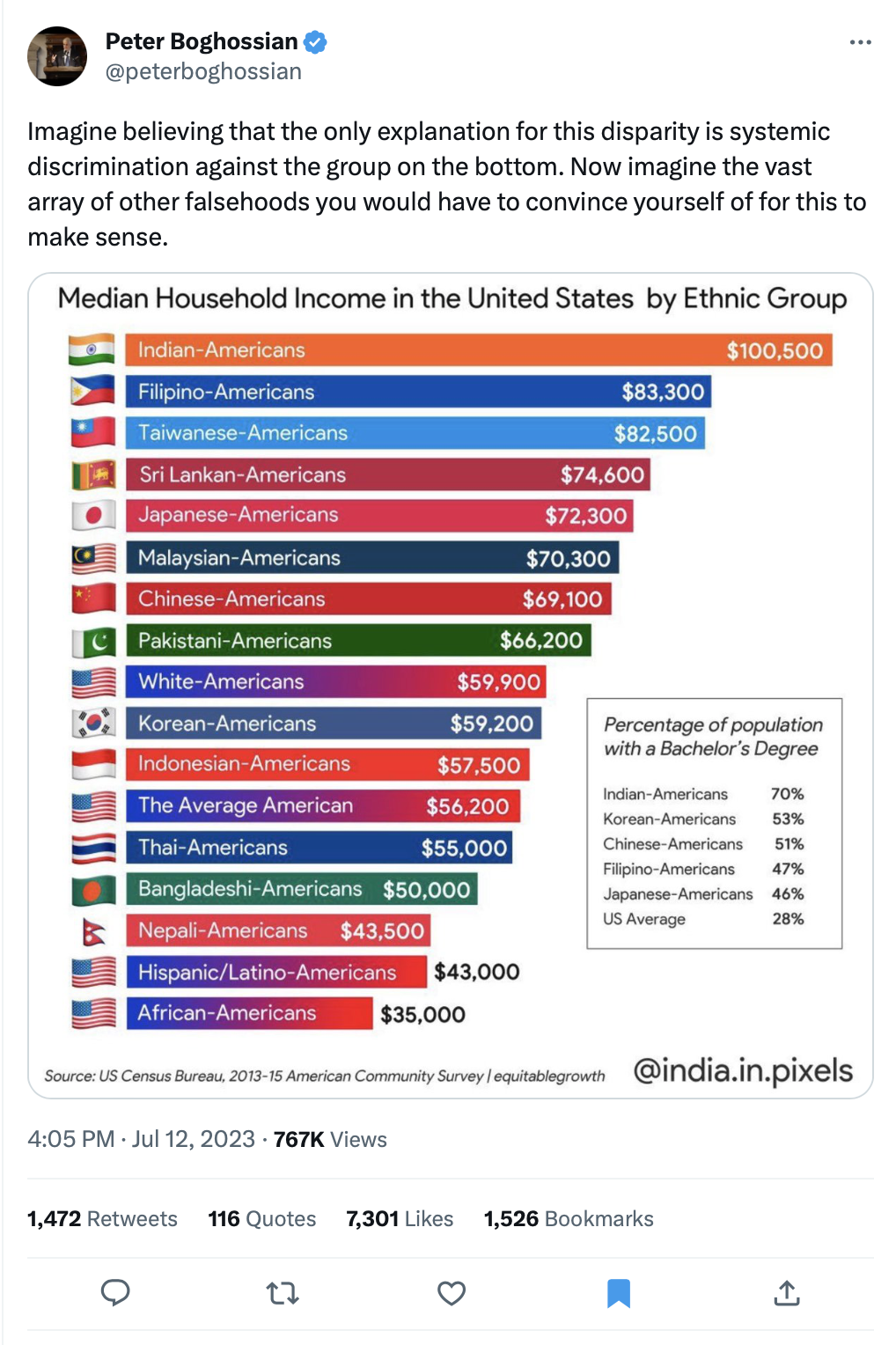Germaine Greer Rejects Gender Ideology
Germaine Greer, regarded as one of the major voices of the second-wave feminism movement in the latter half of the 20th century.
Germaine Greer, regarded as one of the major voices of the second-wave feminism movement in the latter half of the 20th century.
As Carl Sagan explains, meaningful conversation involves constant skepticism and testing of viewpoints and claims. Anything else is kayfabe conversation. Any attempts to outlaw or discourage skepticism or testing of any viewpoint or claim is an attempt to dehumanize the other person, to force them to become your puppet = Nietzschean ressentiment.
Ruy Teixeira explains "How the Democrats Became the Party of the Ruling Class." Excerpt:
The Democratic Party, he argues, has abandoned its traditional working-class base and become a party of college-educated elites. For decades, the party has been hemorrhaging white working-class voters. But in recent election cycles, it has suffered big losses among Latinos without a college education, and has started to slide with non-college-educated Asian and even black Americans as well. The Republicans have capitalized on that loss by embracing these exiled voters, creating an inverted political dynamic that has left those of us old enough to remember the traditional pro-worker, anti-war left with our heads spinning . . .
The city-dwelling, college-educated, professional-class demographic that serves as both the political base of the Democratic Party and the ideological core of the left constitutes America’s new ruling class. As such, its interests, values, and worldview are as one with the institutions that form our country’s political, cultural, and corporate establishments — including government agencies, NGOs, universities, and the industries of cultural production. Unsurprisingly, these power centers benefit from mass censorship of those who dissent from their orthodoxies, from the contrivance of new disciplinary tools to wield against the working class, and from the endless invocation of emergencies to justify radical exercises of state power, such as Covid-19 and the ostensible menace of Vladimir Putin.
 p>
It's trendy to argue that "racism" is the necessary and sufficient explanation for the lack of earnings of groups at the bottom of this chart of household income. Anti-racists reject the need for multivariate analyses. If so, what would it be that accounts for the groups at the top of the chart? That Americans especially like members of those groups? This is an inconvenient chart for those who promote DEI dogma.
p>
It's trendy to argue that "racism" is the necessary and sufficient explanation for the lack of earnings of groups at the bottom of this chart of household income. Anti-racists reject the need for multivariate analyses. If so, what would it be that accounts for the groups at the top of the chart? That Americans especially like members of those groups? This is an inconvenient chart for those who promote DEI dogma.